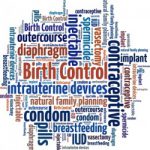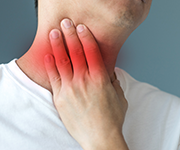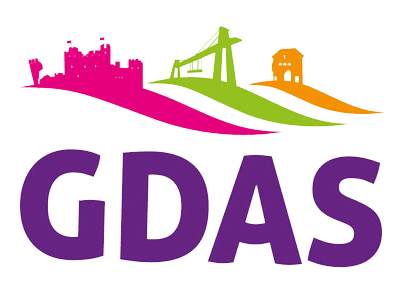
Stay Safe supplies information on Drug Alerts, Health Promotion advice such as healthy eating, Naloxone information and safer practice. Please find below a list of information and links to relevant sites and documentation.
GWENT NOW

Gwent now is an efficient and effective communication system designed to keep the residents of Gwent informed about the latest notifications and prevention advice for their communities. The messages can be tailored to individual preferences for both the type of messages you receive and the means of communication, directed through a preferred channel of phone, email or text message.
Gwent now also allows you to register multiple locations and interests, not just a home address. This is ideal for those who want to know more about where their children go to school, family members who live elsewhere, places to socialise and around place of work.
Registering is free, simple and easy – follow the step by step instructions by going on the ‘Register here’ tab and once you have verified your account, you will be ready to receive messages based on your preferences and locations. Please feel assured that your details will not be passed on to any third party organisations and you can unsubscribe at any time.
Wedinos

Wedinos provides a robust mechanism for the collection and testing of unknown / unidentified or new psychoactive substances and combinations of substances, and the production and dissemination of pragmatic harm reduction advice. Samples may now be submitted by anyone in Wales. Participating organisations such as GDAS will support an individual wishing to submit a sample. In addition, organisations such as GDAS may submit samples that have been found on premises or in the community’’
Following analysis of the samples, timely and accurate information regarding the chemical profile of the samples tested alongside pragmatic harm reduction information, based on the content and legal context, will be made available through a variety of means including the website, health alerts via press release and the quarterly bulletin ‘PHILTRE’.
For more information about how to access services and up to date news and alerts click link below:
Overdose and Naloxone

Naloxone is a drug that temporarily reverses the effects of an opiate overdose and buys you time to dial 999. The Take Home Naloxone Scheme has been running since July 2009 with 985 people trained and over 60 instances of successful administration. The training is available for both service users, professionals, opiate users, significant/concerned others and prison leavers, though the Scheme itself is available only to those considered at risk, meaning opiate users can leave a workshop with a lifesaving Naloxone kit in hand. Naloxone Train the Trainer is also available.
For more information on the Home Scheme, call 03339 933 577 or download our leaflets
Hepatitis C Testing
Right now Hepatitis C testing might be at the bottom of a long list, but treating it quickly will help you to avoid serious liver damage in the future. Testing is confidential, free and painless. Get tested to protect yourself and others.
Understanding Sexual Health

Sexual health is more than birth control and protecting yourself from sexually transmitted diseases – it’s about making positive choices for both you and your partner.GDAS services are able to offer the provision of Clinical Interventions, such as; Sexual Health screening, contraception, BBV and HIV screening including vaccination
For more information on sexual health, call 03339 933 577 or download our leaflet
Contraception

Whether you’re single or in a new relationship, the message is clear: if you’re sexually active, the best way to reduce the likelihood of getting anSTI is to always use contraception.
For more information on contraception by visiting the link provided below.
Sexually transmitted infection (STI)

Sexual health is more than birth control and protecting yourself from sexually transmitted diseases – it’s about making positive choices for both you and your partner.GDAS services are able to offer the provision of Clinical Interventions, such as; Sexual Health screening, contraception, BBV and HIV screening including vaccination
If you think that you have an STI, don’t panic. Go to your doctors surgery or speak to a GDAS member of staff or your local sexual health clinic and get tested, and treated if required.
If you have any concerns or would like to talk things through further, plenty of support and help is available via the GDAS team. Some of the services available are:
-
Chlamydia screening (by appointment or drop-in available) and otherSTI testing
-
Contraception, including condoms, implants and injections
-
Pregnancy testing
You can find out more about symptoms and types of STI’s by visiting the link below or downloading our leaflet.
Healthy Eating
A healthy and balanced diet can help you look and feel your best, and it’s easier than you might think. We provide advice on how to eat healthily to help you on your way to a healthier lifestyle.
Find out about GDAS initiative to help support healthy eating and the resources available to ensure a balanced diet. For more information please download our Healthy Eating Leaflet.
Pseudoaneurysms
A Pseudoaneurysm is defined as a dilation of an artery with an incomplete wall. More commonly seen after an arterial puncture and sometimes seen as a long term complication of IV drug use within the groin area. They can be dangerous and if presented with symptoms will need urgent treatment. Pseudoaneurysms usually present as a painful, tender, pulsatile mass.
-
The overlying skin is sometimes erythematous (red)
-
They can sometimes be confused with abscesses.
-
The patient may describe a history of IV groin use or trauma, and they may note that the pulsatile mass is gradually expanding.
Pseudoaneurysms can form in the legs days, months, or even years after blunt or penetrating trauma. If you have any concerns please speak to your nurse or GP straight away.
Tisi, Paul V; Callam, Michael J (2009). Tisi, Paul V, ed. “Treatment for femoral pseudoaneurysms”. Cochrane Database of Systematic ReviewsTuberculosis (TB)

Tuberculosis (TB) is a disease caused by the tubercle bacillus Mycobacterium tuberculosis. TB usually affects the lungs (pulmonary), but can affect other parts of the body (extra- pulmonary) such as the lymph nodes, the bones and (rarely) the brain.
Click for more infoStreptococcal infections

These are any type of infection caused by the streptococcus (“strep”) group of bacteria.
There are many different types of Streptococci bacteria, and infections vary in severity from mild throat infections to life-threatening infections of the blood or organs. Most streptococcal infections can be treated with antibiotics.
For more information please see the link;
Click for more info
